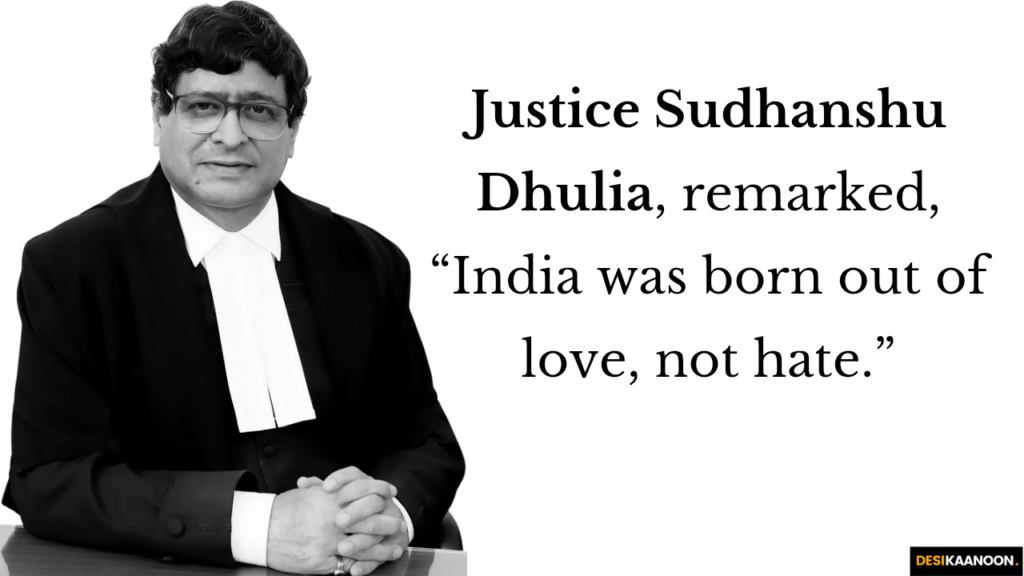Aastha Pareek
Justice Sudhanshu Dhulia, speaking at a program held at O.P. Jindal Global University, remarked, “India was born out of love, not hate.” This powerful assertion was part of his broader reflections on India’s constitutional ethos and its foundational values of inclusivity, equality, and fraternity. The event, which brought together legal scholars and jurists, provided a platform for Justice Dhulia to emphasize the need for preserving these ideals amidst contemporary challenges.
Justice Dhulia elaborated on the principles embedded in the Indian Constitution, particularly the Preamble, which encapsulates the promise of justice—social, economic, and political. He elaborated that, “This country was written off but we have proved them wrong. Our governments and democracy have survived. A lot of milestones have been crossed but a lot is left to be achieved. The main difference is our Constitution, at the time of our country’s creation, was born on religion, and got divided because of language. One of the reasons people say our country stays united is Hindi movies, one is cricket. But mainly the Constitution.”
His statement highlights the collective spirit of India’s independence movement, which aimed to build a nation united by its diversity and driven by a commitment to harmony and mutual respect. He further implied that the legal and social frameworks in India must reflect these values to uphold the constitutional promise of fraternity.
This statement resonates particularly in the context of contentious issues, including the Citizenship Amendment Act (CAA), which has sparked debates about inclusion and exclusion. Justice Dhulia’s comments align with his judicial philosophy, emphasizing fairness, compassion, and the need to protect the rights and dignity of every individual. His observations serve as a call for introspection, urging citizens and policymakers to focus on unity and love as the driving forces for progress, ensuring that the divisive forces of hate have no place in India’s constitutional democracy.
The event highlighted Justice Dhulia’s enduring commitment to using the judiciary as a tool for fostering inclusivity and bridging divides within society. His words stand as a timely reminder of the principles that continue to define India’s identity as a nation rooted in love and mutual respect.

